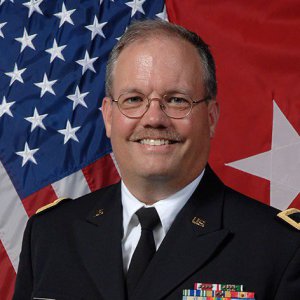
Brigadier General (ret.) Paul Gregory Smith of Nichols College
Updated: Oct. 26, 2018
By BRIGADIER GENERAL (ret.) PAUL GREGORY SMITH
Although the motivation behind the recent distribution of numerous pipe bombs won’t be certain until the perpetrators are apprehended, it is likely that this is an act of violent extremism.
The FBI defines violent extremism as, “encouraging, condoning, justifying, or supporting the commission of a violent act to achieve political, ideological, religious, social, or economic goals.” Given the fact that all the targets of the pipe bombs are political figures, or have spoken out on political issues, it is highly probable that this is an act of violent extremism.
So far, law enforcement agencies have been successful in seizing all bombs before detonation. This is largely due to the vigilance of alert and knowledgeable security personnel who were able to detect suspicious packages.
Although it sounds elemental, the watchfulness of a wide network of professionals and civilians who are willing to “see something, say something,” is the most powerful counterterrorism tool we have. We must remember that it was the heads-up provided by an observant citizen in Watertown that directly led to the apprehension of the surviving Boston Marathon bomber.
The possession of undetonated bombs in multiple sets will provide forensic experts with numerous clues and leads as to the origin of the materials, the location of the bomb maker, and perhaps the identites of perpetrators and accomplices.
In addition, the FBI has wisely called on the general public to contact them at 1-800-225-5324 (1-800-CALLFBI) with any information that may relate to the pipe bombers.
While these crimes have not yet been officially labeled as acts of domestic terrorism, it is likely that they soon will be designated as such. The threat of domestic terrorism is as deadly to U.S. citizens as the threat of transnational terrorism. According to a report issued by the Anti-Defamation League, 372 people in the U.S. were killed in acts of domestic terrorism between 2007 and 2016.
So what can all Americans do to counteract the threat of domestic violent extremism?
As previously mentioned, the most important action is to “see something, say something” by reporting suspicious activity to local police or the FBI through their hotline. We also know that there are actions that fuel violent extremism. Speculation about the perpetrators, hate speech, and counter threats of violence only serve to escalate tension, justify the acts of violent extremists in their own minds, and spawn follow-on violent actions. “False flag” speculation is particularly harmful. During the 2013 Boston Marathon bombings, we learned that “false flag” fantasies distracted from the hunt for the actual perpetrators and created security risks for innocent people.
During this time of anxiety and confusion, it’s important to remember the intent of all forms of terrorism—to create fear, anxiety, and chaos. Until the perpetrators are brought into custody, Americans need to avoid speculation, tamp down the divisive dialogue that has plagued our nation, and, above all, if they “see something, say something.”
Brigadier General (ret.) Paul Gregory Smith served in staff and command assignments in the Massachusetts Army National Guard for over 35 years. He served the U.S. Northern Command (NORTHCOM) as the Dual Status Commander, as well as the Joint Task Force Commander during the 2013 Boston Marathon bombing response.
Nichols College Professor, Retired Brigadier General Paul Gregory Smith Expert Profile from Nichols College on Vimeo.